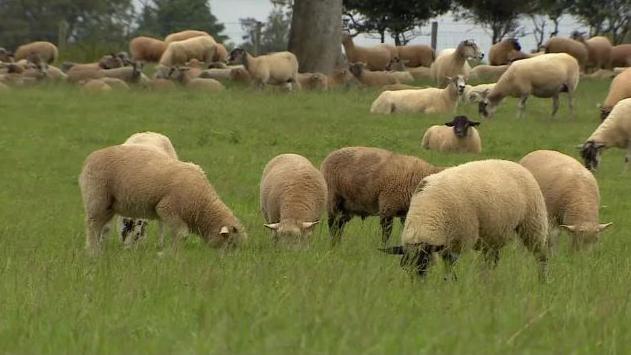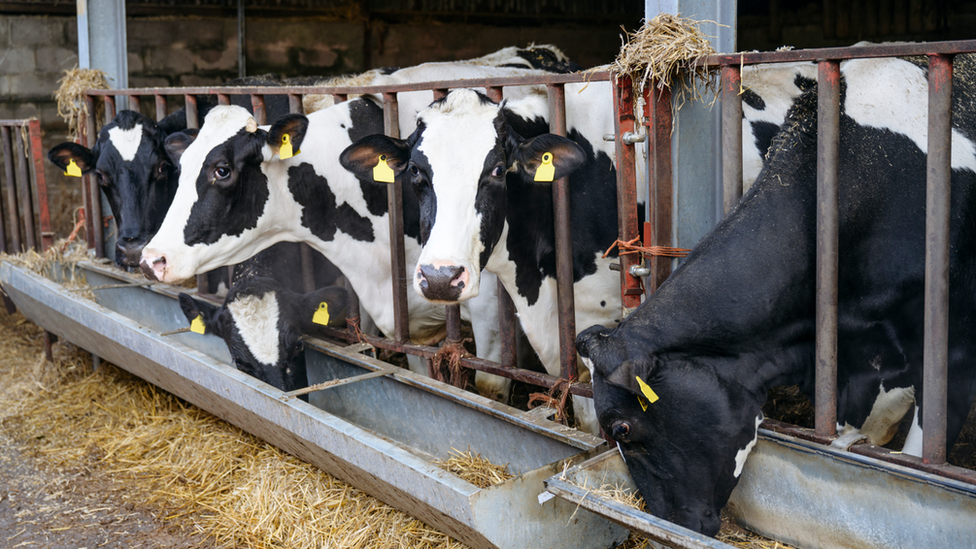Livestock import ban after UK bluetongue cases

Sheep are among the livestock susceptible to the bluetongue virus
- Published
The importation of livestock to the Isle of Man has been banned after cases of bluetongue were confirmed in the UK.
The immediate ban covers sheep, cattle and goats, which are all susceptible.
The disease was first detected in a cow on a farm in Canterbury in Kent on 11 November, with a further four cases identified on nearby farms on Sunday.
Chief veterinary officer Amy Beckett said it was "vitally important" for the island to "take decisive action" to keep the virus out.
The infection can cause the animals to have ulcers and swelling around the mouth and nostrils, breathing problems, lameness and infertility, and can affect milk production.
The Department of Environment, Food and Agriculture (Defa) said it posed no danger to humans or the food chain.
'Pre-import testing'
The UK government said the affected animals would be humanely culled.
A six-mile (10km) temporary control zone has been introduced in the area of Kent where the notifiable disease was detected, which restricts the movement of animals.
Dr Beckett said, while it was not known how long the restrictions would be in place, Defa had “already started looking at the potential for pre-import testing”.
That could allow the island to “lift the complete ban, but only once we have established robust controls”, she added.
Defa said about 200 sheep and 100 bovine animals were imported to the island each year, predominantly for breeding purposes.
Defa Minister Clare Barber said the department had “moved quickly” to safeguard Manx livestock and “protect the island’s bluetongue disease free status”.
As bluetongue is a notifiable disease, any suspected cases must be reported to Defa immediately.
Why not follow BBC Isle of Man on Facebook, external and X, external? You can also send story ideas to IsleofMan@bbc.co.uk
Related topics
- Published27 November 2023
